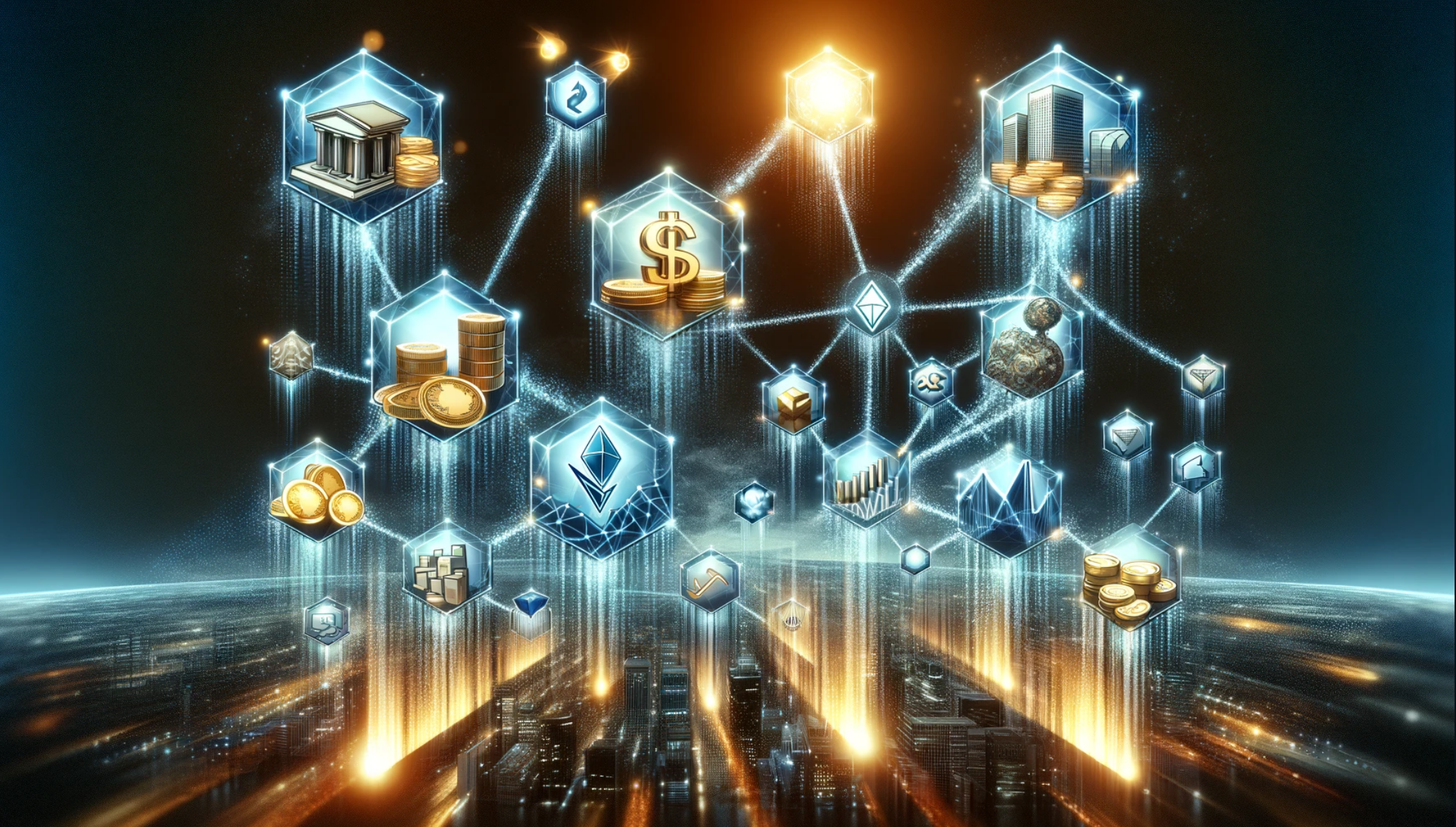The Liquidity of RWAs and the Resulting Demand (1/3)
Introduction
Since the initiation of Bitcoin futures ETF trading on October 19, 2021, a significant milestone was reached on January 10, 2024, with the final approval of a Bitcoin spot ETF by the SEC. This can be seen as a pivotal event indicating the gradual integration of the crypto market with traditional capital markets. Over the past few years, the Web3 sector has continuously evolved in innovative areas such as NFTs, DeFi, and the Metaverse. Alongside Bitcoin’s recent entry into the institutional realm, the tokenization of Real World Assets (RWAs) is garnering attention for potentially creating significant synergies with the demands of traditional capital markets.

The Need for RWAs in Web3
Post-DeFi Summer and Crypto Winter
Following the DeFi Summer, the crypto market faced a severe crisis due to the Terra-Luna incident in 2022 and liquidity issues in lending protocols. This crisis led to the bankruptcy of several related investment institutions. Despite the 2021 bull market being driven by liquidity generated through DeFi lending protocols, a sharp decline in altcoin prices triggered a series of liquidations, shifting the market to a bearish phase. During and after this period, the crypto market made significant efforts to secure liquidity and improve efficiency. However, the bear market led to a reduction in rewards from DeFi protocols, resulting in a drastic decrease in market liquidity. This situation brought about three major changes in the DeFi market, which had been growing on a liquidity basis since the 2021 DeFi Summer. The first change was the emergence of Liquid Staking Providers (LSPs), which are based on natural cash flows within protocols. The second was the introduction of Liquidity as a Service (LaaS) and cross-chain messaging to enhance the utilization of existing liquidity. Lastly, there was a move towards seeking external liquidity outside of the crypto market.
Integration of Traditional Financial Assets and DeFi Protocols: Opportunities and Challenges
Reliable traditional financial assets, which constitute a significant portion of the global asset value, are increasingly becoming a focus in the DeFi market. Efforts are ongoing to enhance accessibility to Real World Assets (RWAs), with more DeFi protocols and crypto investors turning their attention to traditional financial assets like stocks and bonds. However, accessing these traditional assets is challenging due to various restrictive factors such as regulatory barriers, high minimum purchase prices creating entry barriers, international illiquidity, and compatibility issues between protocols. Consequently, many projects are attempting to build indirect investment infrastructures using DeFi protocols to more effectively connect traditional financial assets with Web3.
More over, if financial institutions lead the inflow of funds into DeFi, it could bring significant changes not only to financial products but also to the entire DeFi industry. Cashlink, a company specializing in RWA tokenization infrastructure, claims that using tokenization protocols can reduce the costs of initial issuance, custody and lending services, and secondary market trading by up to 65% compared to traditional methods.
RWA Tokenization can also reduce service fees imposed at each stage of the securities management process, including issuance, circulation, and product synthesis. This simplification of complex procedures enhances transparency and liquidity. Additionally, it promotes decentralized access to traditionally illiquid assets like real estate and commodities, expands participation opportunities for small investors, and rebalances the dynamics of asset ownership and investment.
RWA tokenization involves converting a variety of traditional financial assets, such as gold, bonds, credit loans, carbon credits, and real estate, as well as digital assets like game assets, into digital token form. RWA tokenization not only has infrastructural financial effects but also, when combined with DeFi, allows for the division of assets into smaller units and broadens access to a wider range of capital market participants. This expands investment opportunities in high-value assets and enhances overall capital efficiency. Thus, RWA tokenization presents an ideal solution for bridging the gap between the crypto market and traditional capital markets.
Attempts to Connect Financial Products with On-Chain Assets
In line with this trend, major financial and government institutions such as Blackrock, Goldman Sachs, JP Morgan, Franklin Templeton, and Wisdomtree are advancing the on-chainization of RWAs. Similarly, key players in the RWA infrastructure services and Web3 industry, including MakerDAO, Aave, Maple Finance, Ondo, Centrifuge, Phuture, Goldfinch, Swarm, Credix, Clearpool, and Truefi, are aligning with these movements. These efforts to connect traditional finance (TradFi) with decentralized finance (DeFi) are expected to further accelerate the integration of the digital and real economies.
Conclusion
RWA tokenization is emerging as a pivotal element in fostering the integration of the Web3 economy with the tangible economy. This shift is bridging the gap between traditional capital markets and the crypto market, providing new opportunities for key players in the Web3 sector, as well as financial and governmental institutions. It allows a broader spectrum of capital and financial participants to access a variety of assets. RWA tokenization enhances transparency and liquidity, and boosts capital efficiency. Moreover, it addresses inefficiencies in the processes and costs of the existing financial system, paving the way for new types of financial services. These developments are expected to stimulate the growth of the DeFi market and have a positive impact on the financial industry through collaboration with traditional capital markets. Moving forward, RWA tokenization is anticipated to drive innovation in both the financial industry and the Web3 sector, leading to significant changes in the global economy. RWA tokenization will transcend being merely a Web3 momentum, becoming a crucial factor in shaping the future of finance and the direction of global economic development.
